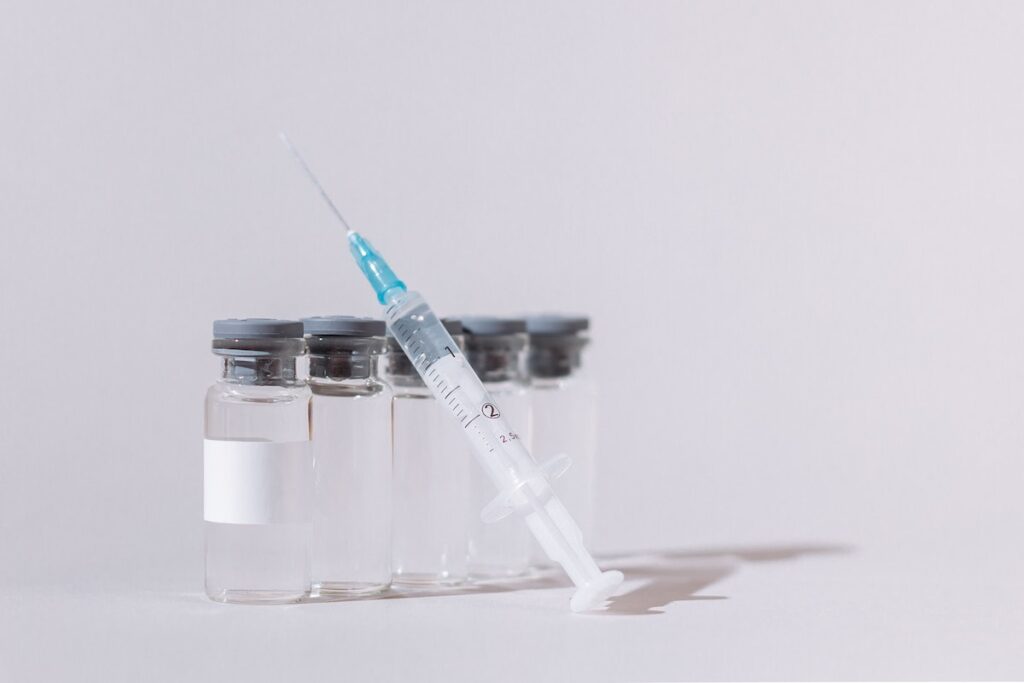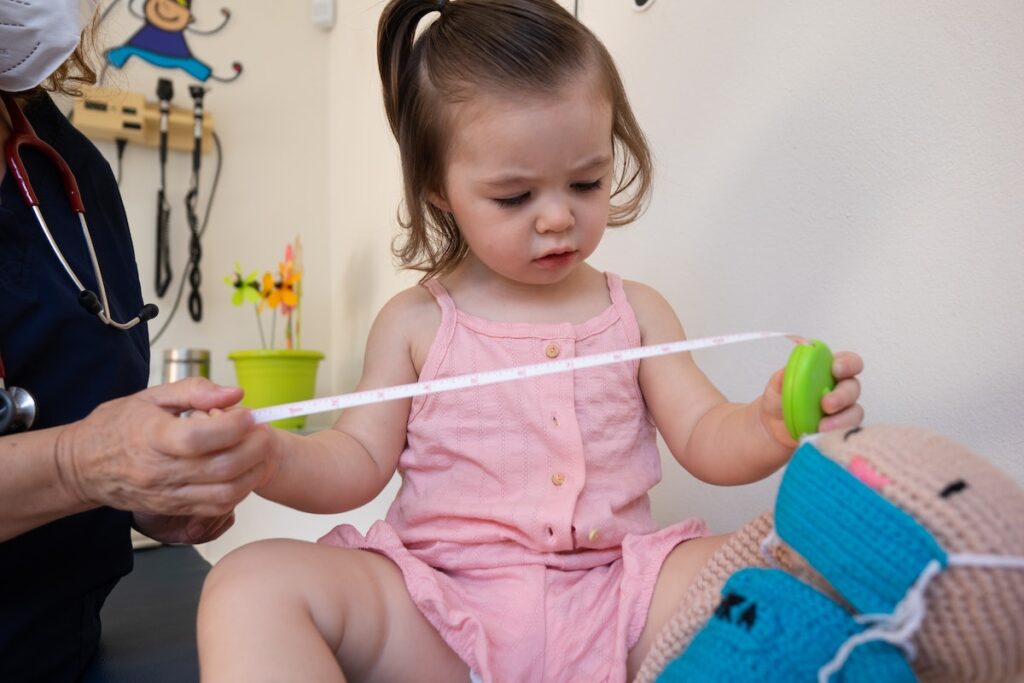As a parent, keeping your child healthy is among the best you want for your child. To ensure your child’s health, following recommended immunization schedules is one crucial step you can take.
In this article, we’ll discuss everything about vaccinations you should know, including their protective role of your child from vaccine-preventable diseases.
Vaccination Vs. Immunization
First, let’s make the difference between vaccination and immunization clear. The process to administer a vaccine is vaccination, while protection that results from vaccination is immunization. In other words, vaccination is the means to achieve immunization.
But how do vaccines work? Vaccines stimulate the immune system in the body to recognize and fight specific viruses or bacteria. It protects against a particular infectious disease when a person receives it.
Vaccines typically contain a weakened or inactivated form of the pathogen or a small piece of it, such as a protein. Vaccines are either a weakened form of the pathogen or a small piece of it, incapable of causing disease.
When received, the vaccine triggers the immune system to recognize and respond to the pathogen or pathogen piece in the vaccine. This response includes the production of antibodies, which can recognize and destroy the pathogen if it enters the body in the future. In this way, vaccines provide immunity to specific diseases.
Types of Vaccines

There are several types of vaccines, including.
- Live attenuated vaccines, which contain weakened but live viruses or bacteria. Examples include mumps, the measles, mumps, and rubella (MMR) vaccine and the chickenpox vaccine.
- Inactivated vaccines contain killed viruses or bacteria. Examples include the polio vaccine and the hepatitis A vaccine.
- Subunit, recombinant, or conjugate vaccines contain pieces of the virus or bacteria (such as a protein or sugar) instead of the whole pathogen. Examples include the human papillomavirus (HPV) vaccine and the pneumococcal conjugate vaccine.
Childhood Immunizations
What are the most critical immunizations? All childhood immunizations are necessary, but some are considered essential. The CDC recommends the following vaccines for all children:
- DTaP (diphtheria, tetanus, and pertussis)
- Hib (Haemophilus influenzae type b)
- PCV13 (pneumococcal conjugate vaccine)
- IPV (polio)
- Influenza (flu) – annually for children six months and older
- MMR (measles, mumps, and rubella)
- Varicella (chickenpox)
These vaccines protect against serious and potentially life-threatening diseases, including meningitis, pneumonia, polio, measles, rubella, and chickenpox.
Childhood immunizations are essential because they protect children against vaccine-preventable diseases, which can cause serious illness, hospitalization, and even death.
Vaccines are safe and effective, and following the recommended immunization schedule helps ensure that children are protected as early as possible, at the most practical times, and maintain herd immunity.
What are the recommended immunizations for children?
The CDC recommends a series of vaccines for children, starting at birth and continuing through adolescence. Here is a list of the recommended childhood immunizations:
- Hepatitis B
- Rotavirus
- DTaP (diphtheria, tetanus, and pertussis)
- Hib (Haemophilus influenzae type b)
- PCV13 (pneumococcal conjugate vaccine)
- IPV (polio)
- Influenza (flu) – annually for children six months and older
- MMR (measles, mumps, and rubella)
- Varicella (chickenpox)
- Hepatitis A
- HPV (human papillomavirus) – recommended for both boys and girls starting at age 11 or 12
- Meningococcal conjugate vaccine – recommended for adolescents beginning at age 11 or 12
It’s important to note that the recommended vaccine schedule may vary slightly depending on factors such as the child’s age, health status, and other individual factors. Your healthcare provider can guide your child’s recommended immunization schedule.
FREQUENTLY ASKED QUESTIONS
Are vaccines safe?

Yes, vaccines are safe. The CDC clarifies that vaccines are thoroughly tested for safety and effectiveness before being approved. The CDC also states that serious side effects from vaccines are rare, and the benefits of vaccination far outweigh the risks.
What are the Side Effects of Vaccines?
Vaccines can cause side effects like any medication, but most are mild and temporary. Common side effects include soreness or swelling at the injection site, fever, and a mild rash.
These side effects normally go away on their own within a few days. Serious side effects are rare, but you should talk to your healthcare provider for concerns.
What are the Consequences of Not Vaccinating My Child?
The consequences of not vaccinating your child can be severe. Vaccine-preventable diseases, such as measles, polio, and whooping cough, can cause serious illness, hospitalization, and even death.
Not vaccinating your child also puts others at risk, especially those who cannot receive vaccines for medical reasons, such as infants or people with weakened immune systems. This is where herd immunity comes into play.
Herd immunity occurs when a high percentage of the population is vaccinated against a disease, making it difficult for the infection to spread. This protects those who cannot receive vaccines or those at higher risk of severe illness, such as the elderly.
How can I prepare my child for vaccinations?
There are several ways you can prepare your child for vaccinations. First, talk to them about why vaccines are necessary and what to expect during the appointment. You can offer comfort measures like distraction techniques or a favorite toy.
Finally, be a role model by getting vaccinated yourself and showing your child that vaccines are a normal part of staying healthy.
Why is it Important to Follow the Immunization Schedule?
It’s essential to follow the immunization schedule for several reasons.
- First, following the recommended schedule ensures your child is protected against vaccine-preventable diseases as early as possible.
- Second, following the schedule helps ensure that your child receives vaccines at the most effective times when their immune system can respond to the vaccine. Third, following the schedule helps avoid missed doses and the need for catch-up vaccines, which can be more costly and time-consuming.
- Finally, following the schedule helps maintain herd immunity, protecting your child and those around them who may be at higher risk for severe illness.
Conclusion
In conclusion, childhood immunizations are critical in protecting your child’s health. Vaccines are safe and effective and have been thoroughly tested for safety and effectiveness.
Following the recommended immunization schedule can help protect your child against vaccine-preventable diseases and maintain herd immunity to protect those around you.

Consult your doctor or healthcare provider to learn more about the recommended vaccine schedule for your child and how to prepare them for vaccinations.













